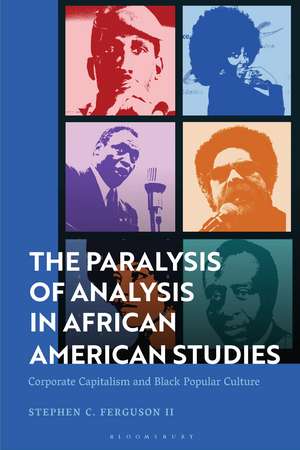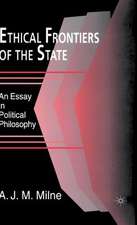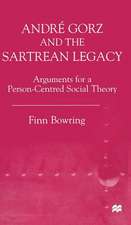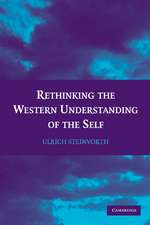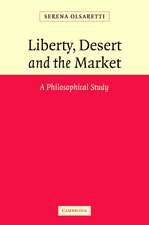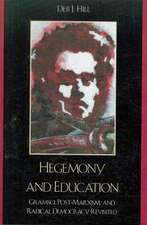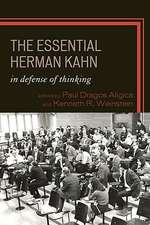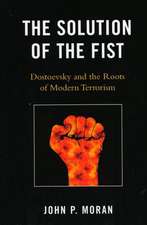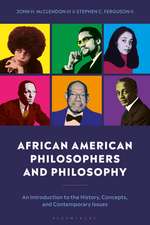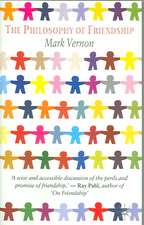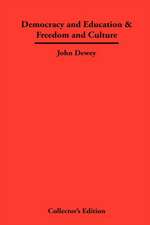The Paralysis of Analysis in African American Studies: Corporate Capitalism and Black Popular Culture
Autor Stephen Ferguson IIen Limba Engleză Hardback – 18 oct 2023
Preț: 511.23 lei
Preț vechi: 731.68 lei
-30% Nou
Puncte Express: 767
Preț estimativ în valută:
97.83€ • 101.52$ • 81.77£
97.83€ • 101.52$ • 81.77£
Carte tipărită la comandă
Livrare economică 17-31 martie
Preluare comenzi: 021 569.72.76
Specificații
ISBN-13: 9781350368941
ISBN-10: 1350368946
Pagini: 256
Ilustrații: 2 bw illus
Dimensiuni: 156 x 234 mm
Greutate: 0.55 kg
Editura: Bloomsbury Publishing
Colecția Bloomsbury Academic
Locul publicării:London, United Kingdom
ISBN-10: 1350368946
Pagini: 256
Ilustrații: 2 bw illus
Dimensiuni: 156 x 234 mm
Greutate: 0.55 kg
Editura: Bloomsbury Publishing
Colecția Bloomsbury Academic
Locul publicării:London, United Kingdom
Caracteristici
Offers the first exploration and an extensive discussion of the political economy and philosophy of Hip-Hop music
Notă biografică
Stephen C. Ferguson II is Associate Professor in the Department of Philosophy and Religious Studies at North Carolina State University, USA. He is co-author with John H. McClendon III of African American Philosophers and Philosophy (2019).
Cuprins
AcknowledgementsIntroduction Part I. The Corporatization of Black Culture1. "Much To Do About Nothing": Black Popular Culture, Inc.2. The James Brown Theory of Liberation: Black Capitalism, Bourgeois Cosmopolitanism and Black LiberationPart II. On Hip-Hop Music: Philosophical Considerations on Political Economic Contradictions3. Listening to the Future in the Present: The Philosophy of Hip-Hop Music4. The Political Economy of Hip-Hop MusicPart III. Philosophy of African American Studies: Postmodernist Analysis and Political Paralysis5. The "Cultural Turn" in African American Studies: From Harold Cruse to "Black Marxism"6. Class Struggle in African American Studies:7. The Paralysis of Poststructuralist PostmodernismAnalysisNotesBibliographyIndex
Recenzii
The Paralysis of Analysis in African American Studies provides a searing critique of the role political economy and socially irresponsive cultural entrepreneurs play in stifling and under-developing African American culture simply for gain. Stephen C. Ferguson II's honest assessment takes no prisoners! A true must have for anyone interested in how cultural analysis should be done.
Through sharp, rigorous, and careful analysis, Ferguson draws our attention back to an intellectual project rooted in struggle, one grounded in our "radical each-otherness." Ferguson's dialectical approach does not direct us toward the doom of despair, but instead, he reminds us that balancing the truth of the current moment of danger with the limits of the tools and instruments of this world is the place of possibility and creativity.
Ferguson effectively demonstrates why he continues to be the foremost scholar in the philosophy of African American Studies. He presents the most pivotal scholarly contribution on the matter of Black popular culture to date. Ferguson's dialectical materialist approach provides valuable insights into the broad range of Black cultural/ideological tendencies today. By scrutinizing the class contradictions within the Black community, he examines Black cultural production and its relationship to the political economic interest of corporate capitalism. This book is a must read for scholars, cultural critics and significantly activists that are engaged as cultural workers in ongoing mass struggles.
Through sharp, rigorous, and careful analysis, Ferguson draws our attention back to an intellectual project rooted in struggle, one grounded in our "radical each-otherness." Ferguson's dialectical approach does not direct us toward the doom of despair, but instead, he reminds us that balancing the truth of the current moment of danger with the limits of the tools and instruments of this world is the place of possibility and creativity.
Ferguson effectively demonstrates why he continues to be the foremost scholar in the philosophy of African American Studies. He presents the most pivotal scholarly contribution on the matter of Black popular culture to date. Ferguson's dialectical materialist approach provides valuable insights into the broad range of Black cultural/ideological tendencies today. By scrutinizing the class contradictions within the Black community, he examines Black cultural production and its relationship to the political economic interest of corporate capitalism. This book is a must read for scholars, cultural critics and significantly activists that are engaged as cultural workers in ongoing mass struggles.
